#tsar mikhail I
Explore tagged Tumblr posts
Text
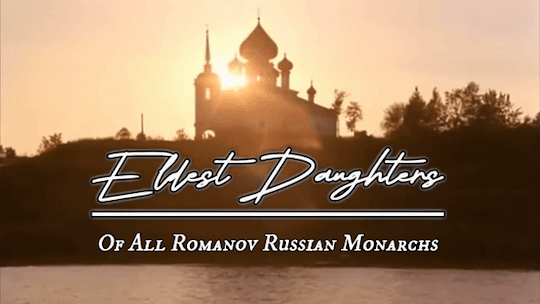

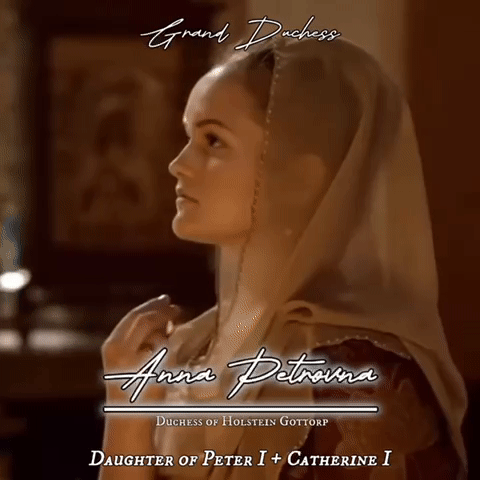
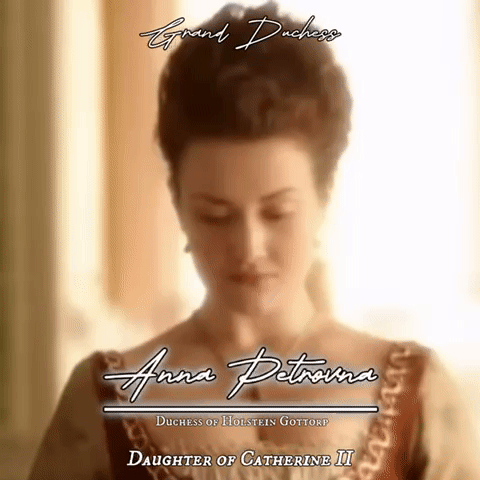


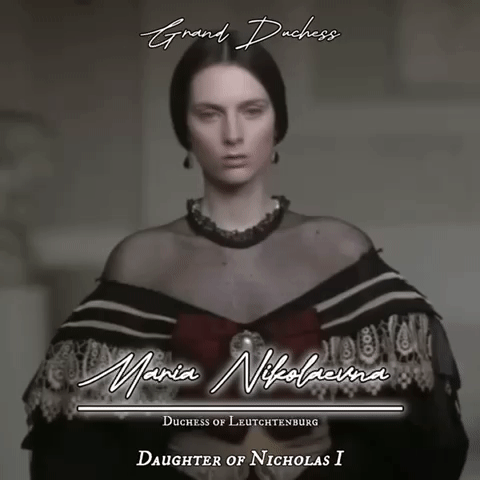
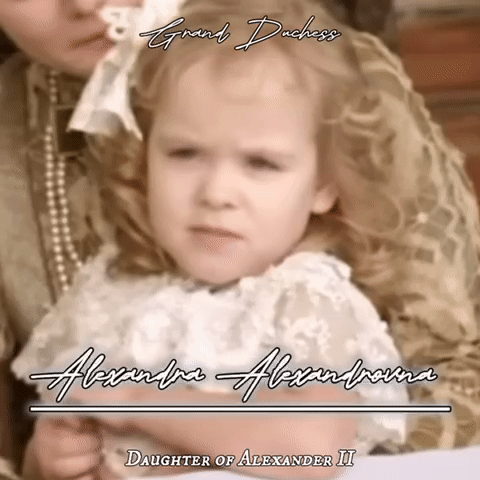
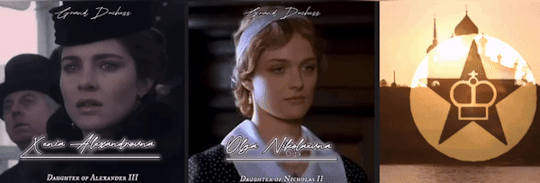
Eldest daughters of all Romanov Monarchs of Russia gifset
❦
#my first gifset!#it turned out okay but I will keep improving#Romanovs#Romanov#russian imperial family#Russian history#irina mikailovna#tsar mikhail I#evdokia alexeivna#tsar Alexei I#Catherine ivanovna#tsar Ivan v#Anna petrovna#Peter the great#Catherine I#Catherine the great#Alexandra pavlovna#tsar Paul I#maria alexandrovna#tsar Alexander i#Maria nikolaevna#tsar Nicholas I#Alexandra Alexandrovna#tsar Alexander III#xenia alexandrovna#tsar Alexander ii#olga nikolaevna#tsar nicholas ii#my edit#made by me
71 notes
·
View notes
Text
Instead of rewriting my notes for math I sat on twinote making random images of the sillies 😓
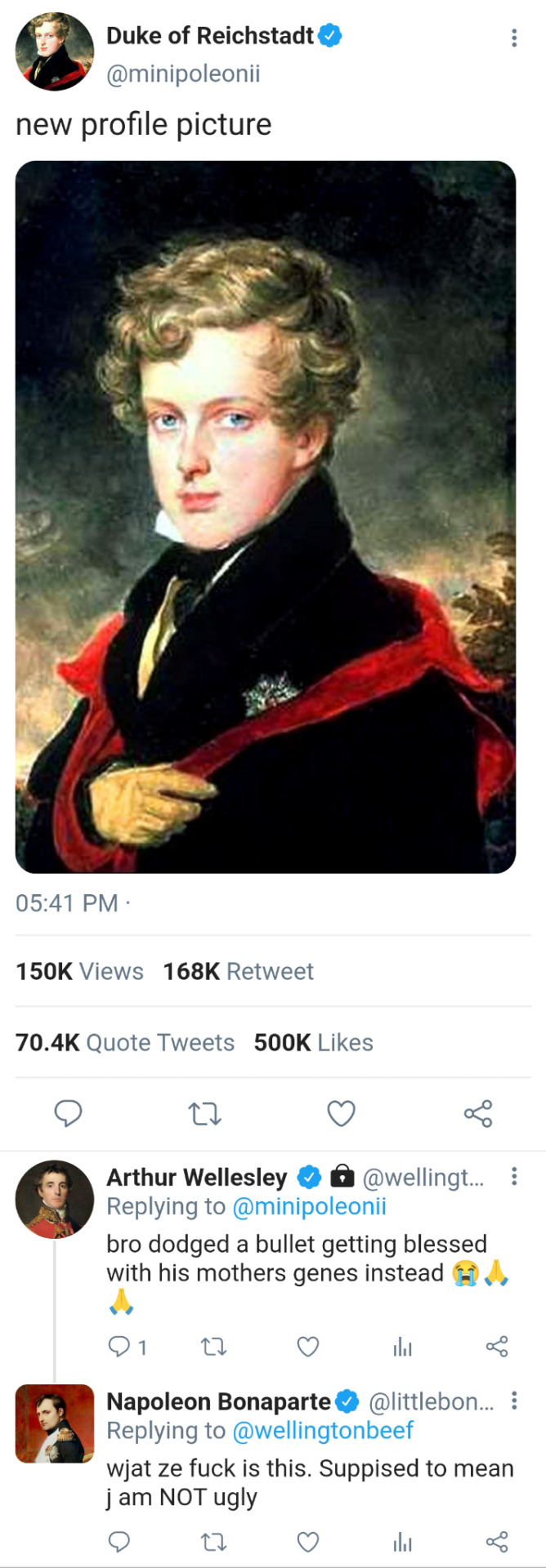
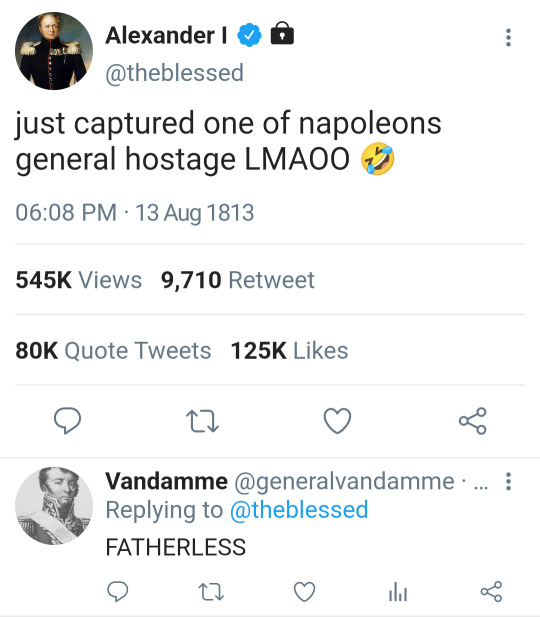
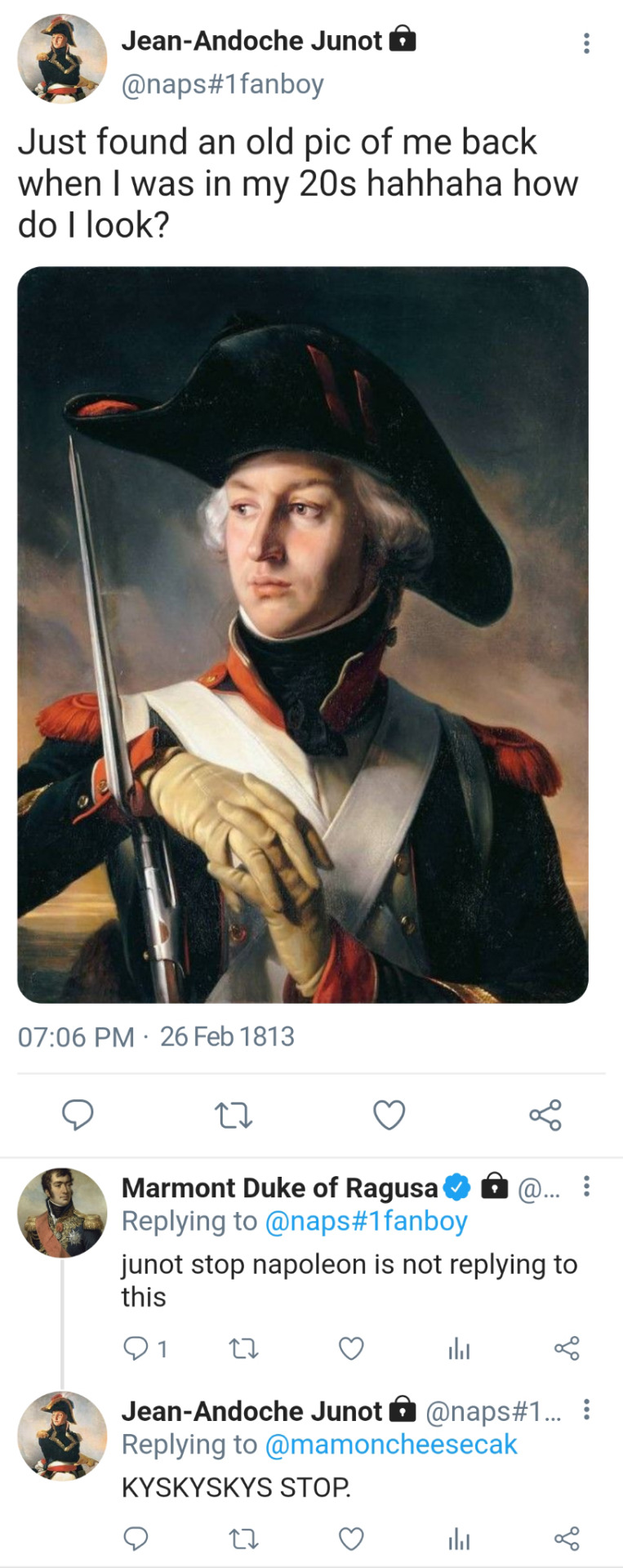

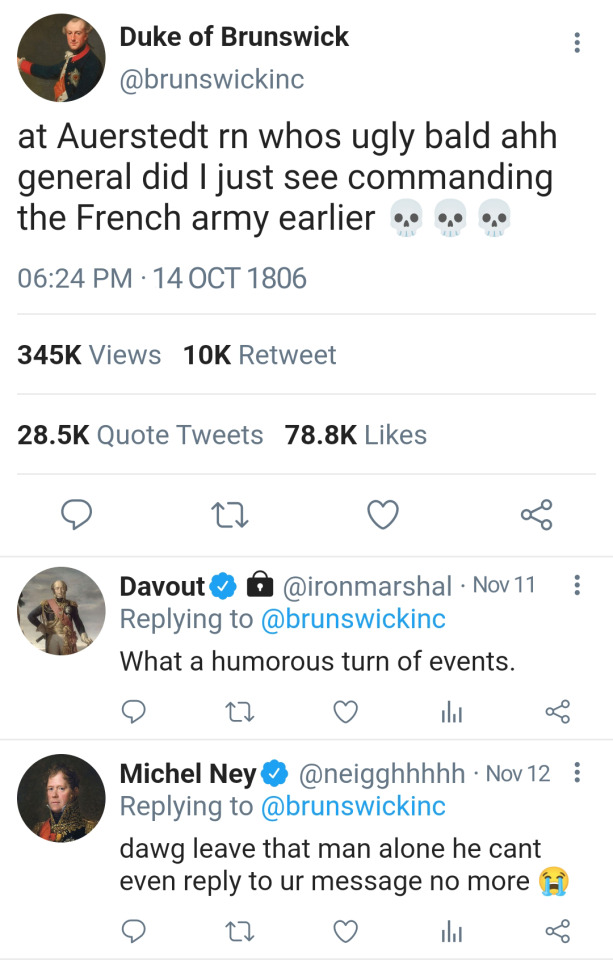

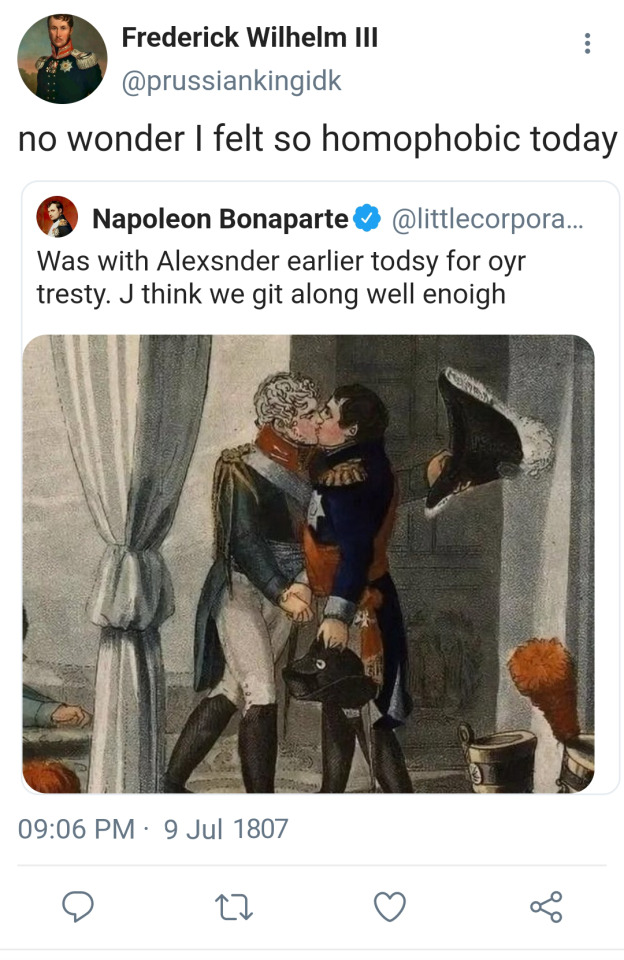
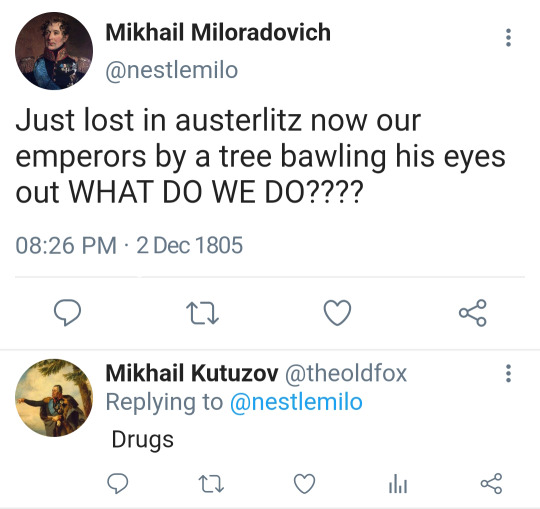


for some stupid reason nowadays tumblr wont load and all I see are blurred images and loading screens this is absolutely outrageous 😡😡
#napoleon bonaparte#tsar alexander i#alexander i of russia#mikhail miloradovich#mikhail kutuzov#jean andoche junot#louis alexandre berthier#louis nicolas davout#michel ney#arthur wellesley#duke of reichstadt#napoleonic wars#jean baptiste bernadotte#there was more but it hit the limkt 💔#guys plsss i swear im funny#TRUST#shitposting
378 notes
·
View notes
Text
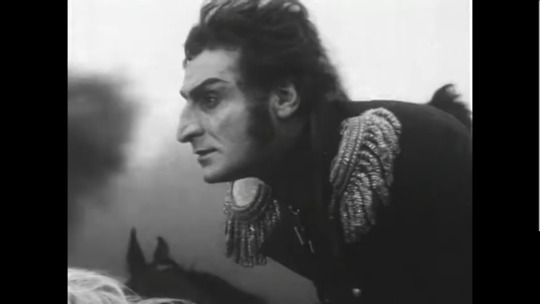
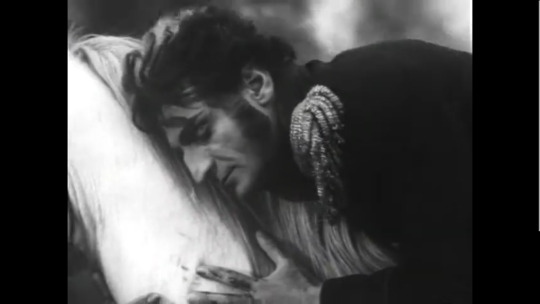
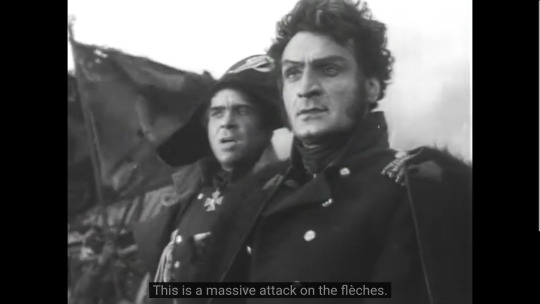
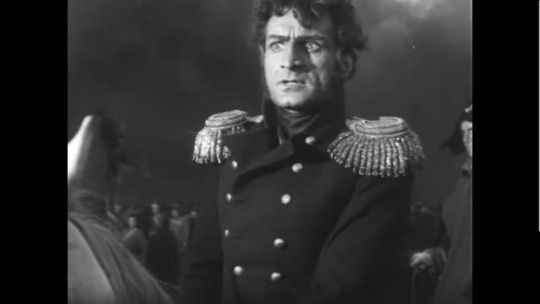
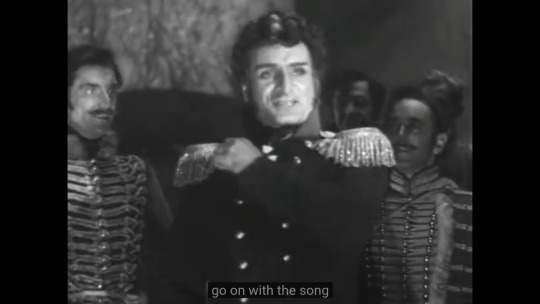
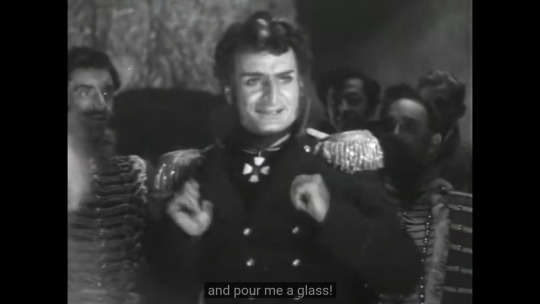
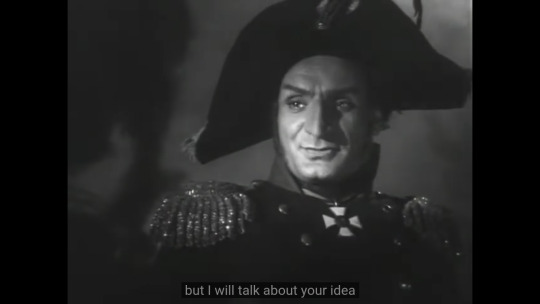
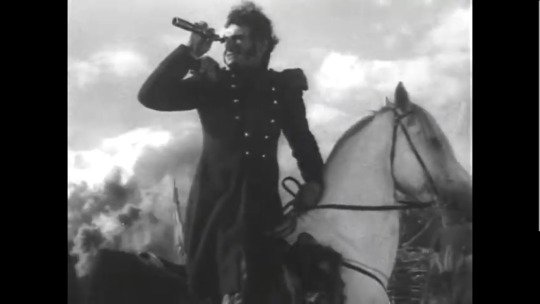
PYOTR IN KUTUZOV 1943 IS SO SOSOSO GUHHH GOOBER!!!
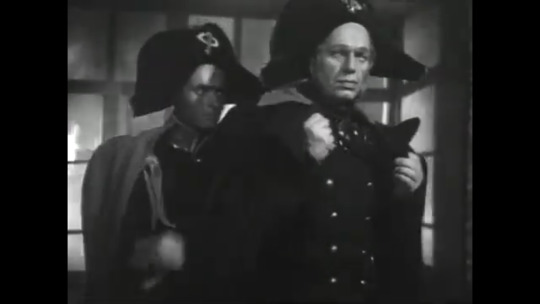
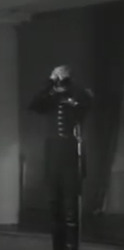
Bonus barclay and Sasha…. I haven’t even finished the movie yet save me
#pyotr bagration#Петр Багратион#mikhail kutuzov#kutuzov 1943#napoleonic wars#history#tsar alexander i#alexander i of russia#imperial russia#barclay de tolly#bagration#i love him#i’m going insane
144 notes
·
View notes
Text
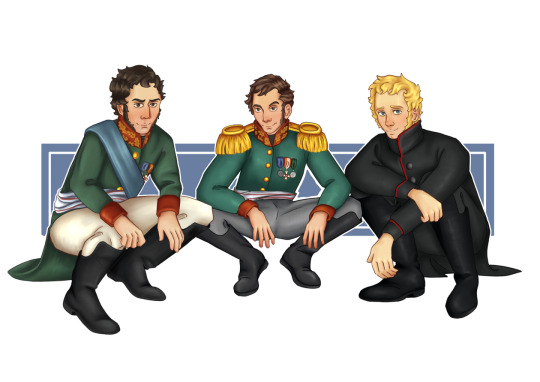
#pyotr bagration#mikhail miloradovich#tsar alexander i of russia#alexander i#napoleonic era#napoleonic wars#artists on tumblr
118 notes
·
View notes
Text
The last post reminded me of something I was reading up on recently. In 1812 Alexander was forced to fire Speransky, his state secretary (who’s reforms were growing unpopular with the nobles and the tsar had to placate the public), and the latter came out of the emperor’s office after the 2 hour long interview “pale and covered in tears” and when asked said that the tears weren’t his.
Alexander really called on him to fire the man and ended up being the one crying
#I can just picture it#wouldn’t be surprised if speransky had to console him also like. who’s firing who here#can he not play the victim for 5 minutes#alexander i of russia#mikhail speransky#tsar alexander i
22 notes
·
View notes
Text
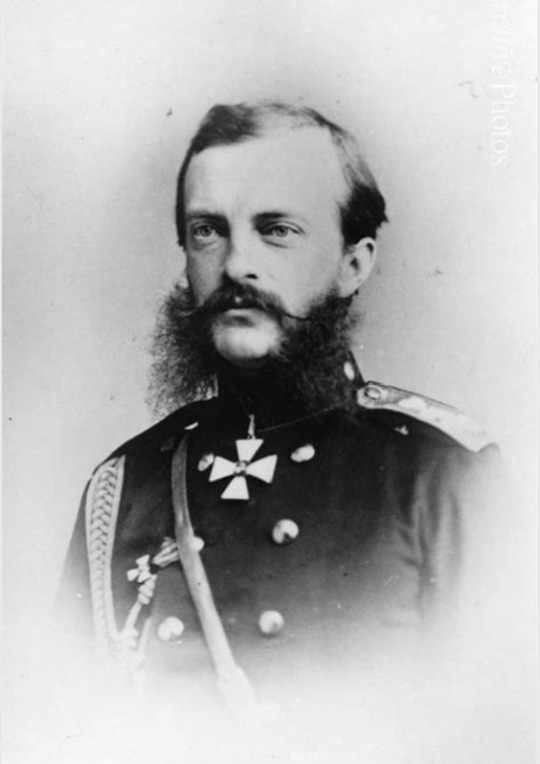
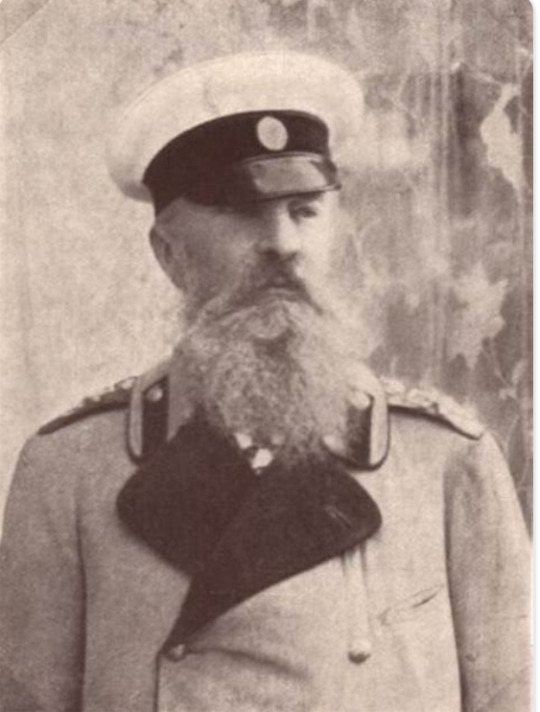
Grand Duke Mikhail Nicholaievich (1832 - 1909)
Grand Duke Mikhail Nicholaievich was the youngest son of Nicholas I. He had a successful career as the Governor General of the Caucasus and later as part of the Tsar's Advisory Council (by then, Alexander III was Tsar.) He served under four Tsars in the course of his life and was the last Field Marshal created in Russia. The Romanovs loved him and considered him a "grand seigneur" with exquisite manners and perfect command of etiquette.
"Uncle Misha," as he was sometimes called, was the father of Grand Duchess Anastasia Mikhailovna and the so-called "Wild Caucasians," his six sons, all Grand Dukes, with a mind of their own and loud voices which they did not hesitate to use. It is practically impossible to discuss the last thirty years of the Russian Empire without mentioning one of Grand Duke Mikhail's sons.
His wife, the formidable Princess Cecilie of Baden (Grand Duchess Olga Feodorovna), a very intelligent but not very likable woman raised their progeny (with an iron fist.) She pre-deceased him by many years. "Uncle Misha" had a stroke and spent the last few years of his life living with his daughter in the South of France. All the Romanovs visited him there at some time or another.
Once "Uncle Misha" died, the semblance of union that existed among the Romanovs at that point, disappeared. The Dynasty might not have crumbled, but the family did.
The "Wild Caucasians" (or, more correctly, the Mikhailovichi) from left to right:
Grand Duke Nicholas Mikhailovich ("Uncle Bimbo), Grand Duchess Anastasia Mikhailovna (Stasi), Grand Duke Mikhail Mikhailovich (Miche-Miche), Grand Duke Georgiy Mikhailovich (Gogi), Grand Duke Alexander Mikhailovich (Sandro), Grand Duke Sergei (no nickname that we know off) and Grand Duke Alexis Mikhailovich, who died at age 20.
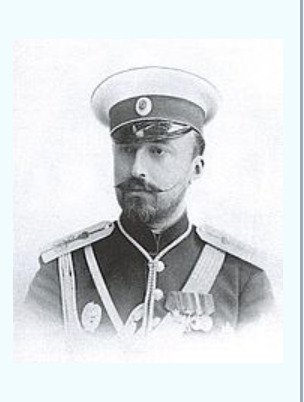
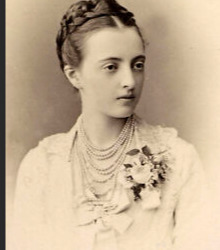

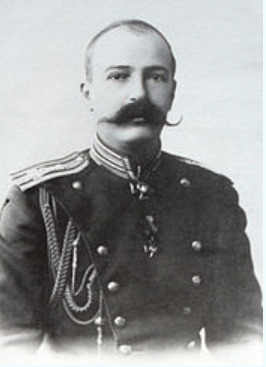
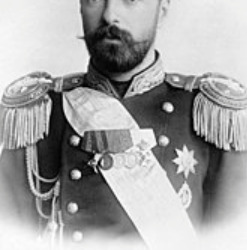
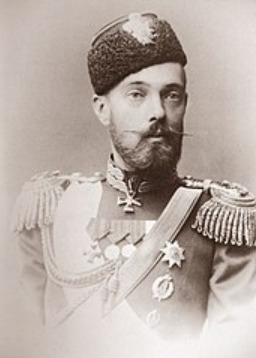
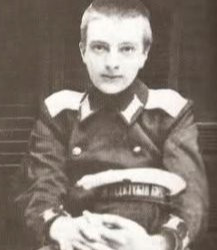
#russian history#romanov dynasty#Grand Duke Mikhail Nicholaevich#Grand Duke Nicholas Mikhailovich#Grand Duke Alexander Mikhailovich#Grand Duke Sergei Mikhailovich#Grand Duke George Mikhailovich#Grand Duchess Anastasia Mikhailovna#Grand Duke Alexis Mikhailovich#Grand Duchess Olga Feodorovna#Tsar Nicholas I
15 notes
·
View notes
Text
Okay, I've been looking into tomorrow's date, and woooo boy did a ton of interesting stuff happen in history on 15th March.
First and foremost, the reason we celebrate, assassination of Caesar. We know it, we love it. We stab it. What no I didn't say anything y anyway, moving on.
The Hungarian Revolution, although not interesting to me, starts in 1848. aka the year everything went to hell and I'm surprised we didn't have a First World War that early on.
Then, probably most interesting to me is the fact Nicholas II abdicates the throne in 1917., ending the 304 year long rule of the Romanovs, AND THEN IN 1990. Gorbachev is elected president of the Soviet Union, which probably led to it's break-up.
that's really ironic, don't you think? Nick abdicates and the beta Soviet Union is set up, and on the same day just 73 years later, it's cursed to take a chill pill because of Gorbachev, and then breaks up.
Anyway, sharpen your knives and get ready, we're swarming the salad boy in the morning.
#it's also really cool I'm in the same time zone so i can act it out on my pillow lmao#...i won't give my pillow stab marks but ykwim#julius caesar#ides of march#tsar nicholas ii#soviet union#mikhail gorbachev#we should totally just stab caesar#the romanovs#hungary#i guess idk i have a bad feeling about you guys (historicaly speaking) as a person. y'all are the chillest people ever.#mb rant :)#and here's my brand new history rant tag (*drumroll*)#your kids boutta be educated
4 notes
·
View notes
Text
Besides, while definitely not the norm, sometimes some queer people were accepted at the time. Like Nadezhda Durova aka Alexander Alexandrov, who fought in the Napoleonic war and was allowed to legally transition. Tsar Alexander knew he was trans, gave him his name and a promotion. He published a memoir too, though the publisher changed the title to "Cavalry Maiden" smh. He did get misgendered by people, including Pushkin :(
There was also a gay couple at the time, a French guy (Hippolite Auger) who followed his Russian boyfriend (Mikhail Lunin) to Russia after the Napoleonic War. Later they moved to Paris, and Lunin wrote a gay historical novel about Dimitri the Pretender.
"how are they going to make a lesbian couple work? are they just going to live in shame and hide from their family and society? are they going to have a gay wedding in the 19th century? i don't have anything against gays but they're forgetting it's the regency era" oh you're worried about historical accuracy? on the "george iii loved his wife so much he ended racism" show?
#bridgerton#queer history#napoleonic era#nadezhda durova#Alexander Alexandrov#alexander i of russia#tsar alexander i#cavalry maiden#hippolite auger#mikhail lunin
100 notes
·
View notes
Text

Grand Duke Mikhail Pavlovich of Russia (Russian: Михаи́л Па́влович) 8 February [O.S. 28 January] 1798– 9 September [O.S. 28 August] 1849. was a Russian grand duke, the tenth child and fourth son of Paul I of Russia and his second wife, Sophie Dorothea of Württemberg, who took the name Maria Feodorovna. He was the younger brother of two Tsars, Alexander I and Nicholas I, and the disputed Tsar Konstantin I.
#imperial russia#romanov#historical photos#russian imperial family#russian empire#russian history#sejarah#history
33 notes
·
View notes
Text

From Mikhail Konstantinovich Dieterichs' book "The Murder of tbe Tsar's Family and of Members of the Romanov House in the Urals" (1922). We can see the famed Russian novel 'Anna Karenina' signed by Tsar Nicholas II, recovered from the belongings left behind by the imperial family during their exile in Tobolsk and then eventual murder in Ekaterinburg. We known that Nicholas did in fact read Tolstoy's book during his captivity as noted in his 1918 diary entries:
February 16 (March 1). Friday. Today I began reading Anna Karenina. The day was not cold, in the morning it thawed, later the sun came out. These last few days we have begun to live again, with the curtailment with the regime. After tea, we rehearsed our play. February 19 (March 4). Monday. I read Anna Karenina with enthusiasm. Today I received a letter from Ksenia. It snowed most of the day. I chopped firewood in the shed - it's dry there. February 28 (March 13). Wednesday. The same sort of day, about 12 degrees of frost. I finished reading Anna Karenina and started reading Lermontov.
#nicholas#belongings#tobolsk#Anna karenina#ipatiev house#Nicholas II#russian literature#russian history
31 notes
·
View notes
Text
Felt happy with my THSC OC x TNO crossover project so much that I decided to draw a second batch of different oc's in different themes and scenarios as TNO characters.
("TW": Depiction of "Nazis" and presence of Nazi stuff for some artwork cause the mod is literally an alternative history scenario where the Axis Powers won WW2. This apply differently depending on the context of the theme.)
@seashoreships 's Five-3 and @te0ni 's Ronslove x West Russian Revolutionary Front
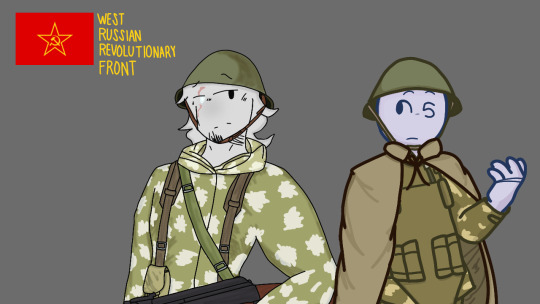
"The Elite Forces of Grandpa Marshal"
@yunaisky 's Doctor Plague (Erick) x Holy Russian Empire
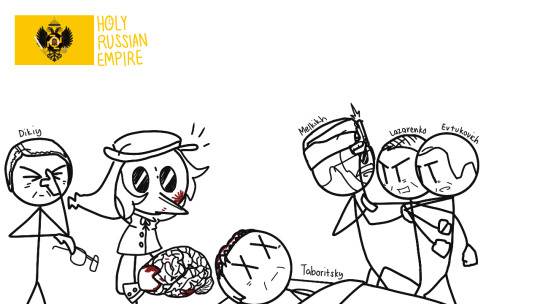
"A Psychological Horror Comedy"
@smoresthehalloweenqueen 's Jake Maven, @rarestdoge 's Ace Jayson Stone, @lumyious-studios 's Phonex Maria, and @androidcharles 's Amelia Copperbottom x Speer's Germany (German Civil War)
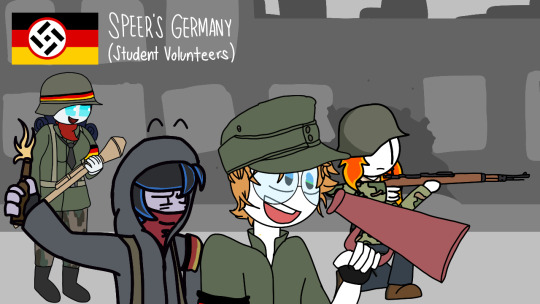
"3,000 Student Volunteers of Speer (Clueless)"
@00lari00 's Pollo Miller and @jaedoesart 's Makaio Palea and Bill Bullet x Magnitogorsk
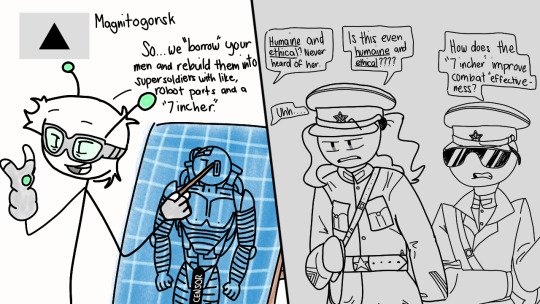
"SCP On Steroids And With Russian Characteristics"
@sikacangijo 's Dr. Picklenana x Shafarevich's Russian Republic
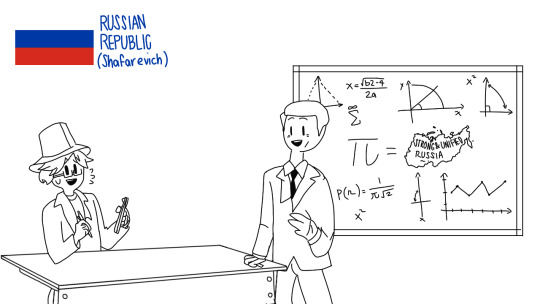
"A Mathematical Approach Towards The Future Of Russia"
@leonightwater25 's Dacia Madelian x Chita (Transbaikal Principality under Mikhail II)
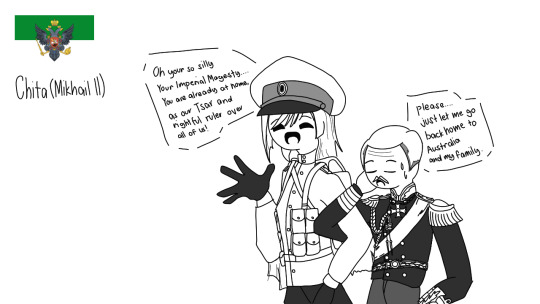
"A Reluctant Austrialian Tsar's Domain In Russia"
#the henry stickmin collection#thsc#henry stickmin collection#henry stickmin#thsc au#thsc art#thsc oc#henry stickmin oc#tno#the new order: last days of europe#the new order#five-3#thsc doctor plauge#thsc erick#jake maven#ace jayson stone#phonex maria thsc#amelia copperbottom#thsc pollo miller#makaio palea#bill bullet#dacia madelian
51 notes
·
View notes
Text
Well, maybe not fucking lol. But intentionally queer coded? Not that unlikely tbh
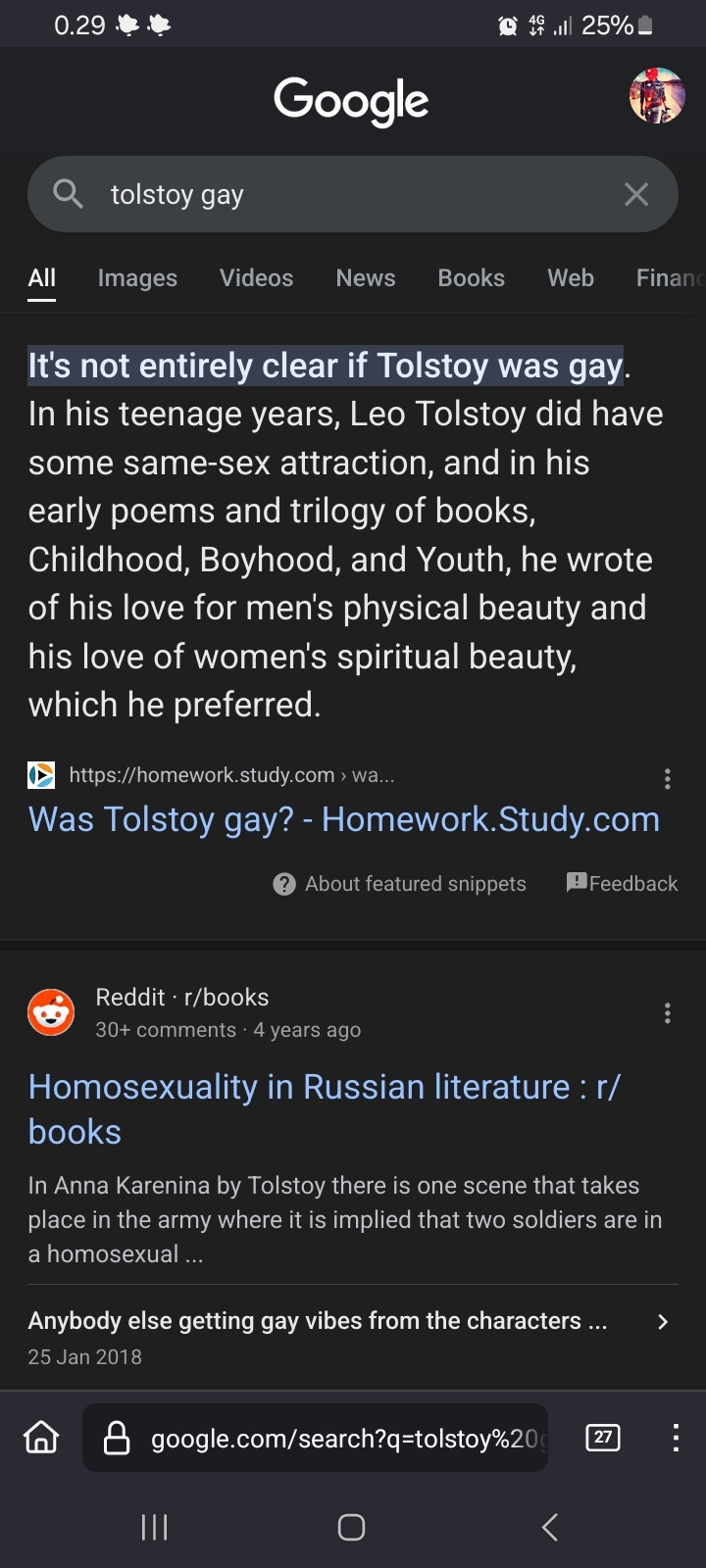
(In case it doesn’t show it, it's "Queer Tolstoy: A psychobiography")
Also there was an openly gay couple just after the Napoleonic War, Mikhail Lunin and Hippolite Auger (the latter French). Mikhail Lunin actually published a gay historical novel about Dmitry the Pretender.
There was also an openly trans man, Alexander Alexandrov/Nadezhda Durova who served in the Napoleonic War. Alexander I knew he was trans and gave him his name and a promotion. Pushkin wrote a preface for his memoir, The Cavalry Maiden, tho he and everyone misgendered Alexander.
Still, it doesn’t seem like Russia has always been hatefully, violently homophobic. There actually were queer people writing queer literature in the 1800s. It was pretty much just Stalin who fucked things.
guy who’s only ever read gay fanfic: this 19th century russian novel reminds me of gay fanfic. pierre and andrei are fucking btw
#tbh I haven’t actually read war and peace#but at least Nijinsky would agree I think#he was definitely gay and a big fan of Tolstoyism#war and peace#leo tolstoy#queer tolstoy#pierre x andrei#tsar alexander i#alexander alexandrov#nadezhda durova#napoleonic era#russian history#queer history#mikhail lunin#hippolite auger
79 notes
·
View notes
Note
I've read every single book I can find on the Romanovs but would like some help finding more books. I just found your blog and I love it!
Hello, thanks for your question. Here are some of my favourite more obscure books for those of you who have read all you can find and raided the libraries!
The Romanovs Under House Arrest: From the 1917 Diary of a Palace Priest edited by Marilyn Pfeifer Swezey
A short, but interesting and beautifully illustrated book that translated the diaries of Archpriest Afanasy Belyaev into English. It gives an insightful look into the last few months and weeks the Romanovs spent at the Alexander Palace and their faith.
LUNCH ON THE BALCONY: Recipes from the table of Russia’s last imperial family by Helen Azar
Can you tell I'm hungry right now? This book has some nice information about the Romanov's food, showing menus they used, letters and diary entries referencing food, and recipes used in the imperial kitchen that you can try at home.
Last Years of the Court at Tsarskoe Selo Volumes I and II by Count Alexander Spiridovich, edited and translated by Katherine Alexandra Hines
A lengthy look at the Count's role as a member of court and security duties. These volumes have some interesting passages about OTMA, though they focus more on the political activities of the Romanovs.
The Forgotten Tutor: John Epps and the Romanovs by John Epps and Dr. Gabriella Land
John Epps, an English tutor to the imperial children, remains a somewhat elusive figure in literature about the Romanovs, with very little information available about him in comparison to fellow tutors Gilliard and Gibbes. I have personally found it very difficult trying to track down this book as it was published a decade ago and seems to have only had one limited print run. The extracts that I have read have been very interesting. If you're interested in OTMA's childhood and education, this book is perfect for you - but good luck finding it! :(
A Few Years Before the Catastrophe: The memoirs of Sofia Ivanovna Tyutcheva edited and translated by George Hawkins
A very short but interesting read directly from the recollections of Sofia Ivanovna Tyutcheva who looked after the children. It gives a short but enlightening look at how things were run in the nursery.
When Miss Emmie Was in Russia: English Governesses Before, During and After the October Revolution by Harvey Pitcher
This book has a more sweeping view of Russian nannies in general, but has some nice tidbits of information about OTMA's nannies, such as Margaret Eagar (though she was Irish, not English!). If you enjoyed Charlotte Zeepvat's book on royal nannies that has some great info and sources on OTMA, this is a good follow up read.
Step-daughter of Imperial Russia by Natalia Mamontova Majolier
Recollections from Natalia "Tata", Grand Duke Mikhail Alexandrovich's beloved stepdaughter. Lots of information about growing up with Mikhail and experiencing the Revolution.
Russia, My Native Land: A U.S. Engineer Reminisces and Looks at the Present by Gregory Tschebotarioff (Chebotaryov)
Written by the son of Grand Duchess Olga and Tatiana Nikolaevna's fellow nurse and friend, Valentina Ivanovna Chebotaryova, this memoir gives a greater picture of Valentina's life by including extracts of her diary. It also has details about Gregory's experience serving in WWI.
Anastasia's Sisters: Their Diaries, Letters and Memories edited by Raegan Baker and translated by Catherine Hamel
A short book with extracts from Grand Duchesses Olga, Tatiana, and Maria's writings. I always find it interesting to read different translations of the same sources and find various changes made my each translator. As always, translations rely on the translator's discretion and interpretations.
The Many Deaths of Tsar Nicholas II by Wendy Slater
This book is an academic, somewhat cold and clinical, look at the deaths of the Romanov family. The compilation of scientific analysis (though this was published in 2007, so not accurate to recent discoveries) during the middle sections is the best part of this book, as the fictionalised narrative at the start doesn't appeal to me and the analysis during the latter stages veers off focus.
The Jewel Album of Tsar Nicholas II and a Collection of Private Photographs of the Russian Imperial Family by Alexander von Solodkoff
A lovely illustrated book - if you can afford it!! This regularly sells for over $100, but is very detailed and beautiful, including high-quality full-colour copies of Nicholas' "Jewel Album" with his annotations and marvellous drawings.
My Father by Maria Rasputina
For fans of the infamous Rasputin, this glimpse into how daughter Maria perceived her father is an interesting read. Rasputin is one of the most contentious and well-researched figures in this area of history, and reading his daughter's experiences and how she viewed his healing of Tsarevich Alexei is a unique viewpoint.
The Emperor Nicholas II: As I Knew Him by John Hanbury-Williams
Major-General Sir John Hanbury-Williams provides an intimate look at life during WWI in Russia, from the perspective of his role as an English representative at Stavka. Some interesting observations about Nicholas and Alexei.
Lost Tales: Stories for the Tsar's Children by Gleb Botkin
Gleb Botkin, only seventeen, composed and illustrated this series of tales (collected here as one book) for the imperial children during their imprisonment at Tobolsk. A lovely look into Gleb's artistic skills, and the interesting parallels between his animal characters and the revolution. Not necessarily a history book, but an interesting insight into life at Tobolsk.
In case I missed any, if you search #q and #answered on my blog it will come up with a list of previous questions, a lot of which relate to reading recommendations, so you might find some more suggestions there.
For information of a compilation of primary source writings written by the Romanovs that have been translated into English, see here
Happy reading!
26 notes
·
View notes
Text
Saints&Reading: Tuesday, August 6, 2024
july 14_august 6
THE HOLY MARTYRS NOBLEBORN PRINCES BORIS AND GLEB, IN HOLY BAPTISM – ROMAN AND DAVID (+ 1015)
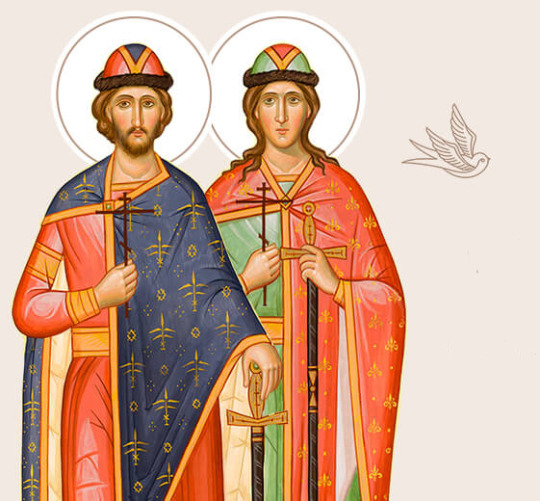
Via St Elizabeth Convent
On 15 May, we commemorate at our churches the venerable princes Boris and Gleb, slain in 1015. They were the first saints of the Russian saints. An ancient chronicler thus describes the nature of their exploit: "They allowed themselves to be murdered by their older brother Svyatopolk vying for the princely throne. They suffered, but did not lay their hand on their brother, earning themselves the crown of eternal glory." They died but did not take upon themselves an act of fratricide. They acted with remarkable humility and obedience to their father, Great Prince Vladimir, from whom their older brother Svyatopolk inherited the throne.
Indirectly, they obeyed the commandment of our Lord: “Honour your father and your mother” (Exodus 20, 12). Shortly before his martyrdom, Boris said: "I will not raise my hand to my older brother: my father is dead, so I will honour him as my father." He continues: "If he, my brother Svyatopolk sheds my blood and dares to slay me, so I will be a martyr before my Lord. I will not resist, for the Lord says: “God opposes the proud but shows favour to the humble.” (1 Peter 5:5). Boris and his brother Gleb did not shed the blood of their older brother for the sake of worldly glory, power or other finite gains. They both likened themselves to Christ, emulating His meekness and humility, and earned glory in heaven. They chose not to hold on to their life on this earth at any cost, but to live in eternity, and become an example for Christians of all generations.
Passion-bearers are righteous Christians who faced their death in a Christ-like manner. Saint Andrey Bogolubsky, Prince Mikhail of Tver and Tsarevich Dmitry of Uglich are some other notable examples of Russian passion-bearers. The last Russian Tsar Nicholas II was also glorified by the Russian Church as a passion bearer. Their virtue was not in dying without guilt, but in facing their killers with dignity, serenity and calm, and submitting themselves unreservedly to God's Holy and Righteous will. They died as Christ did on the Cross. He had all the means to stop his execution, but He took death from His killers.
God's truth and His eternal justice do not rule out the use of force on earth. When Yaroslav - later named the wise and glorified by the Church - went to war with the murderous Svyatopolk to bring him his rightful retribution, he was also obeying the will of God. He received glory in heaven for doing so. God wills some to become passion-bearers, but it is not His will that evil would reign in our world. Evil-doers must know that they may begin to pay for their deeds in this life, even before they are condemned to eternal torment in hell.
Hieromonk Silouan (Mezhinsky) of Optina Pustyn
Astrakhan (1667) VENERABLE BOGOLEP CHILD SCHEMAMONK OF BLACK RAVINE NEAR ASTRAKHAN (1667)
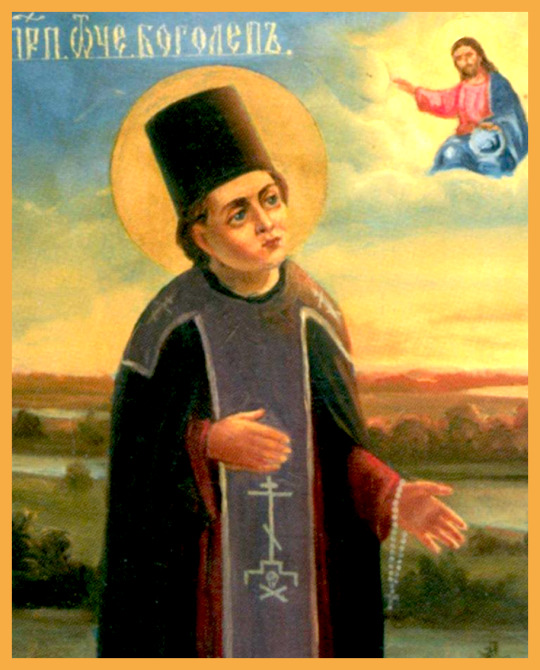
The Child Schemamonk Bogolep was the son of a Moscow nobleman Iakov Lukich Ushakov and his wife Katherine. He was born in 1660 at Moscow. At Baptism they gave him the name Boris, in honor of the holy Passion-Bearer Boris (July 24).
Ushakov was appointed voevoda (military-commander) in the city of Chernyi Yar (Black Ravine), situated 250 versts from Astrakhan. He was known for his integrity. From infancy Boris displayed unusual traits. On Wednesdays and Fridays he would not drink milk from his mother’s breasts. When the bells pealed at the church, he began to cry, and became quiet only when they brought him into the church. When they did not take the infant to church, he cried all day and ate nothing.
In 1662 a deadly pestilence spread about in Russia. The child fell ill, and the pestilence afflicted him in the legs. He became lame, but continued to walk to church. The parents prayed for the health of their son and they tried everything in their power to heal him. But no sooner had the one illness gone, than upon his face there appeared another, called scales.
Once during his illness the child saw a wandering monk who visited at their home. The angelic garb so impressed the child, that he began to implore his parents to sew him such clothing and permit him to receive monastic tonsure. The holy child proclaimed: “You will see for yourselves, when you tonsure and grant me the angelic garb, I shall be well.” The parents consented. The child was invested in the schema with the name Bogolep (the Russian version of the Greek name Theoleptos, meaning “similar to God”).
On the next day the child schemamonk was completely healthy, his face was clear and there remained no trace of the illness. But on the third day there was a new illness, he developed a fever, and it struck down the child. He died on August 1, 1667 and was buried at the left wall of the wooden Black Ravine church in honor of the Resurrection of Christ. (This church was built after a great fire in Black Ravine, on July 24, 1652 the Feast of Saint Boris). A chapel was built over the grave of the child.
The Life of the holy Schemamonk Bogolep was compiled under a vow by the Black Ravine merchant Savva Tatarinov during the years 1731-1732.
Icons of the saint, with the Troparion and Kontakion to him, were widely dispersed throughout the Astrakhan region.
In 1750 on the place of the wooden church a stone church was built with a side-altar in honor of the holy Martyr John the Warrior. The grave of the holy schemamonk was enclosed in this side altar.
The bank of the river, where the church of the Resurrection of Christ stood, was constantly eroding. By the mid-nineteenth century the structure of the church was threatened, and they removed all the holy things from it. For a long time the people of Black Ravine did not remove the chief holy object: the grave of the holy schemamonk. Finally, in 1851 when the water had already approached 4 ft. 8 inches, the people petitioned the Most Holy Synod with a request to transfer the holy relics of the Schemamonk Bogolep, and they received permission for this. The small child’s coffin was laid bare, but just when the city head took it into his hands, it slid out of his hands and disappeared into the waters of the Volga.
This disappearance of the relics just at the opening of the grave was accepted as the Will of God, since the holy child had repeatedly appeared to many either in sleep, or awake while walking along the river bank, or coming down the hill. He consoled them, promising that he would be present spiritually with believers.
The simple life of the holy Schemamonk Bogolep, full of the mysteries of God, illustrates the words of the Savior concerning children: “Let the children come unto Me and forbid them not, for of such is the Kingdom of God. Truly I say to you, whosoever shall not receive the Kingdom of God as a little child, shall not enter therein. And He took them up in His arms, put His hands upon them, and blessed them” (Mark 10: 14-16).
We pray to Saint Bogolep for children, and also for protection against lightning.
Source: Orthodox Church in America_OCA


1 CORINTHIANS 6:20-7:12
20 For you were bought at a price; therefore glorify God in your body and in your spirit, which are God's.
1 Now concerning the things of which you wrote to me: It is good for a man not to touch a woman. 2 Nevertheless, because of sexual immorality, let each man have his own wife, and let each woman have her own husband. 3 Let the husband render to his wife the affection due her, and likewise also the wife to her husband. 4 The wife does not have authority over her own body, but the husband does. And likewise the husband does not have authority over his own body, but the wife does. 5 Do not deprive one another except with consent for a time, that you may give yourselves to fasting and prayer; and come together again so that Satan does not tempt you because of your lack of self-control. 6 But I say this as a concession, not as a commandment. 7 For I wish that all men were even as I myself. But each one has his own gift from God, one in this manner and another in that. 8 But I say to the unmarried and to the widows: It is good for them if they remain even as I am; 9 but if they cannot exercise self-control, let them marry. For it is better to marry than to burn with passion. 10 Now to the married I command, yet not I but the Lord: A wife is not to depart from her husband. 11 But even if she does depart, let her remain unmarried or be reconciled to her husband. And a husband is not to divorce his wife. 12 But to the rest I, not the Lord, say: If any brother has a wife who does not believe, and she is willing to live with him, let him not divorce her.
MATTHEW 14:1-13
1 At that time Herod the tetrarch heard the report about Jesus 2 and said to his servants, "This is John the Baptist; he is risen from the dead, and therefore these powers are at work in him." 3 For Herod had laid hold of John and bound him, and put him in prison for the sake of Herodias, his brother Philip's wife. 4 Because John had said to him, "It is not lawful for you to have her." 5 And although he wanted to put him to death, he feared the multitude, because they counted him as a prophet. 6 But when Herod's birthday was celebrated, the daughter of Herodias danced before them and pleased Herod. 7 Therefore he promised with an oath to give her whatever she might ask. 8 So she, having been prompted by her mother, said, "Give me John the Baptist's head here on a platter." 9 And the king was sorry; nevertheless, because of the oaths and because of those who sat with him, he commanded it to be given to her. 10 So he sent and had John beheaded in prison. 11 And his head was brought on a platter and given to the girl, and she brought it to her mother. 12 Then his disciples came and took away the body and buried it, and went and told Jesus. 13 When Jesus heard it, He departed from there by boat to a deserted place by Himself. But when the multitudes heard it, they followed Him on foot from the cities.
#orthodoxy#orthodoxchristianity#easternorthodoxchurch#originofchristianity#spirituality#holyscriptures#wisdom#gospel#bible#faith#saints
11 notes
·
View notes
Text
Author Commentary - I Know Where to Look (Chapter 1)
Howdy y'all! I just posted the first chapter of my first tf2 fic, and figured that rambling about my thought processes from writing it would be fun. So, enjoy?
Welcome to my first Author Commentary post!
Regardless of if anyone other than my best bud (and partner in word crimes) @cursed—alien read these going forward, I thought it would be fun to explain references and thoughts from the process of fic writing. These are the sort of thing I love to know about my favorite art. I’m a great lover of artist interviews (specifically the ones where the artist in question explains the development of the concept and reasoning for the techniques they use) and an avid reader of author’s notes, so I hope that if anyone reading my fic is like me that they will enjoy this addition to the story.
Formatting
I feel that the most notable thing about this fic is that, despite being rated as explicit, every explicitly sexual scene is under a cut. Why do this instead of just making the scenes fade to black or formatting it in a standard manner? Because, dear reader, I have had the experience of reading explicitly rated fic solely for the buildup to the smut scenes. I experience fluctuations between sex favorability to neutrality, all the way to aversion. When I’m feeling uncomfortable with explicit sexual content, I often wish there was a way to just skip those scenes entirely. But on the other hand, I also acknowledge that sex scenes CAN have narrative and character importance. For the specific dynamic that Corey and I envisioned for Red Oktoberfest- that being a relationship that starts as professional and sexual before becoming emotionally involved, those scenes would be a shame to ignore entirely on my part.
Behaviors and thoughts during sexual intimacy are rich with characterization, and I wanted to be able to express that. So, the best of both worlds, to me, was to have a second layer of opting in to reading those scenes. I may have to redo them later, however, because the way I had to go about it doesn’t work with pdf downloads and likely isn’t screen reader accessible. My current thoughts in regards to those problems is to encourage folks to download as some other format, and eventually create a podfic of this story.
Headcanons Involved
Something you may notice about this is the amount of headcanon I’m trying to cram into it. To be frank, I use most fic writing as a vehicle with which to go “look at my headcanons, boy”, so this isn’t surprising.
The first of which I would like to note is Heavy’s love of pulp romance. I couldn’t tell you why I first thought of it, but it’s grown on me like moss. Mikhail is a lover and a fighter. To me. In my heart. He views all art for what it is, and values the stories themselves pretty equally. The only important difference between the two books he’s carried with him from Russia and the pulp he’s collected in the US is sentimentality.
Speaking of those books, why the two I picked? Brothers Karamazov is a pretty obvious choice. It’s a classic and widely studied. Tsar Hunger by Leonid Andreyev, however was actually mentioned by name in Poker Night At The Inventory. In one conversation, Tycho asks Heavy what his favorite book is, to which he replies that he “prefers war.” Eventually, though, he does end up saying that he likes Tsar Hunger. I wanted to know if this was just a book picked at random, or if it actually meant something about Telltale’s interpretation of Heavy’s character. After all, the tumblr side of the fandom LOVES Heavy’s PhD in Russian Literature. It was. A BITCH. To find any information about that book. There isn’t a goodreads page for it. Or a wikipedia. Or even an amazon page selling copies. Like, what the fuck? Eventually, I found that the Internet Archive has it available to borrow by the hour. The particular copy that was archived was originally from the University of Texas and has a fabric cover. So no synopsis.
At this point I was thinking “oh my fucking god I’m two hours into this research process,” and decided I wouldn’t be reading King Hunger. I’ve skimmed it a bit and, filling in the blanks with some guesses based on the information Wikipedia provided about the author, it’s a symbolic/expressionist criticism of the monarchy, but one which also criticizes bloody revolution. Please take that with a pound of salt though. Once again, I spent a solid three hours getting to that amount of understanding.
This actually leads me to discussing another element that’s important to my interpretation of Heavy. Namely, who is father was. On r/TF2, I constantly see people arguing back and forth whether its fine to joke about Mikhail being “Heavy Communism Guy” or if that’s a gross misunderstanding since his father was declared a counterrevolutionary. (Meanwhile these same dimwits are happily joking about Medic being a member of a certain fascist regime, but I digress)
Personally, I think Mikhail’s father (who I will be calling Ivan Melnyk going forward, as I headcanon Heavy’s full name to be Mikhail Ivanovich Melnyk) was counterrevolutionary, but not anti-communist. That venn diagram isn’t just a circle my friends. In political matters, it’s very easy to get stuck in black and white thinking- and that’s fair for large matters- but, when it comes down to how people believe they should go about making changes, that’s where you get in-fighting between allied groups.
More clearly, I believe that Ivan was a man who believed in progress and common good, but found disproportionate violence distasteful. And he would have tried to impart those values on his son. However, Ivan’s death and his family’s imprisonment would really sour that for Mikhail. It adds a level of complexity where he is both someone who hates senseless violence (see: the sparrow story in Poker Night), but is extremely wrathful (see: the engineer story in Poker Night).
Switching gears, let’s talk respawn. Personally, I like the idea of it as something that exists in universe, rather than just being a game mechanic in the Documentary Video Game About the Gravel Wars. It adds some more leeway for goofy shit the mercs can get up to while also opening up more avenues for mentally trauma. Angst my beloved.
Respawn
Respawn, in my mind, works by teleporting the remains to a mechanism that then recycles the matter into a pre-programmed form. I imagine that this is updated every day for the TF2 mercs, but only by the week or month for the Classic era systems. Upon exiting respawn, subjects may experience “respawn sickness,” which includes symptoms of nausea, diziness, anxiety, sensitivity to light and sound, disorientation, soreness, ect. One can become accustomed to respawn over time, and this is expedited by the modern systems, but some might remain sensitive to respawn even after years of use.
TFI standard protocol is to switch respawn systems over to the older system in order save money and perform diagnostics/maintenance without risking the permanent death of one of their “specialists.”
Another book note
The passage Heavy reads at the end is from a novella called Special Nurse by Lucy Agnes Hancock. It is Yet Another book I haven’t read, but decided to reference. Originally, I had wanted to reference a Harlequin Romance published in 1960-63, as I really didn’t want to include that flavor of anachronism. Dont fucking ask me why, but it mattered to me. However, the vast majority of what I could find online to read was published between 1975 and 1998. There were three books that technically fit my requirements, but the two from 1961 were either vacation romance or noble romance. Which just didn’t fit the vibe I was looking for. And the one from 1963 was published in November of that year. Which would have been fine, but I envisioned this chapter taking place in late May or early June.
In the late 40’s to mid 60’s Harlequin published SOOOOO many hospital romances. And this amused me, so I desperately wanted Heavy to be reading one. But I searched multiple times and just. Couldn’t find any that I could skim through. Fuck, dude, I couldn’t even find samples or excerpts. I COULD BARELY FIND SYNOPSES. I got desperate and dug through my mom’s old romance novel collection and lo and behold, there it was. Special Nurse. It’s not Harlequin (published by Pocket Books) and it wasn’t technically from 60-63 (originally published in 1948, but received 5 print runs from 1950-19060. Mine is from August 1960), but it WAS A DOCTOR ROMANCE. HUZZAH.
Dear fucking lord why do I do this shit to myself ahhhhhhhh
#gopher rambles#fanfic commentary#team fortress 2#heavymedic#red oktoberfest#tf2 heavy#tf2 headcanons#long post
19 notes
·
View notes
Note
why the women that married into the Romanov family had to change their names?
Hi! Foreign princess who married into the family had to convert to Orthodoxy before their marriage, and it was typical to receive a Christian name in honor of an Orthodox saint as well as a Russian patronymic. Most of the married-ins were German by birth, and names like Wilhelmina and Cecilie, for example are not Russian names. The new names were also usually in honor some Romanov ancestor. Empress Alexandra Feodorovna's original German name, Alix, wouldn't have been suitable. I've read that she wanted to take the name Ekaterina, after Catherine the Great, but that Nicholas preferred Alexandra (so they'd be Nicholas and Alexandra, like his great-grandparents). Because the first Romanov tsar was Mikhail Feodorovich, it was fairly common for the bride of a grand duke to take Feodorovna as her patronymic. However, in the case of Grand Duke Vladimir Alexandrovich's wife, Grand Duchess Maria Pavlovna the Elder, she chose her patronymic because she wanted to emphasize that she was a descendent of Russian Emperor Pavel I.
19 notes
·
View notes